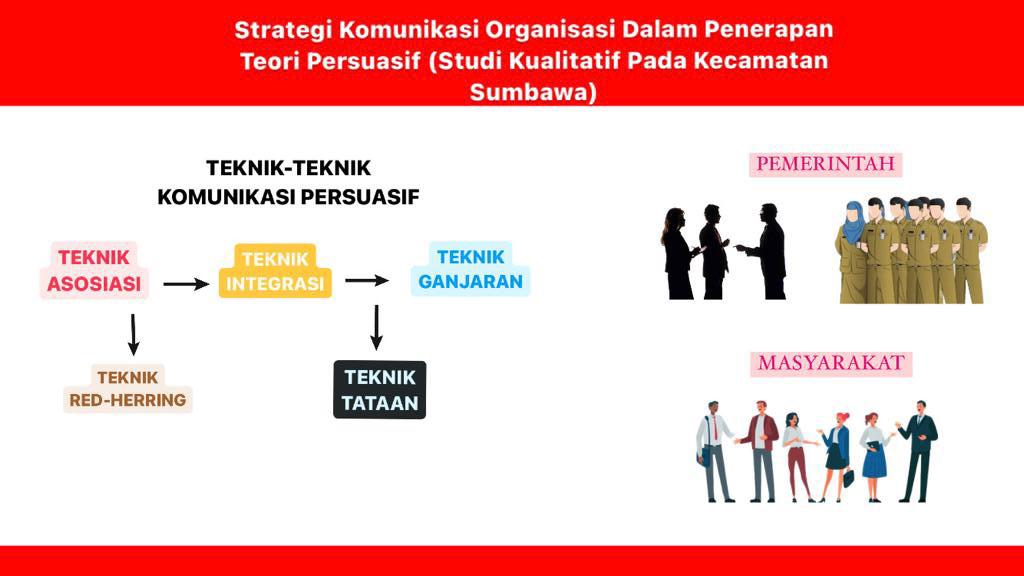STRATEGI KOMUNIKASI ORGANISASI DALAM PENERAPAN TEORI PERSUASIF (Studi Kualitatif Pada Kecamatan Sumbawa)
Keywords:
Komunikasi Persuasif, Teknik, Kecamatan SumbawaAbstract
ABSTRACT
In organizations, the role of a leader in achieving the organization’s goals is strongly demanded by a lack of coordination between the bottom and the top, which in turn leads to misunderstandings and misinterpretations. In addition, prior to the use of social media problems that occur also arise from external communication that is, the lack of communication of the organization to the village officials or the community.This causes the village officers and the community to find it difficult to receive information and refuse to accept a support that is given by the government of the district of Sumbawa. The aim of this study is to understand how persuasive communication is carried out by the Government of Sumbawa. The methods used in this research are qualitative discovery, data collection, using observation techniques, documentation and interviews. As for the data sources used in this research, i.e. primary data and data skunder, the data was obtained through interviews with Camat, Kasubag and the Head of the Sumbawa Section. This study uses the theory of Persuasive Communication Techniques by Effendy in his book Communication Dynamics, and it is concluded that persuasive communication is implemented by the Conductor’s skills through association, integration, reward, order, and Red-Herring techniques. However, the persuasive communication techniques that occur in the Sumbawa Section are not all implemented..
Keywords: Persuasive Communication; Technology; Subdistrict Of Sumbawa.

